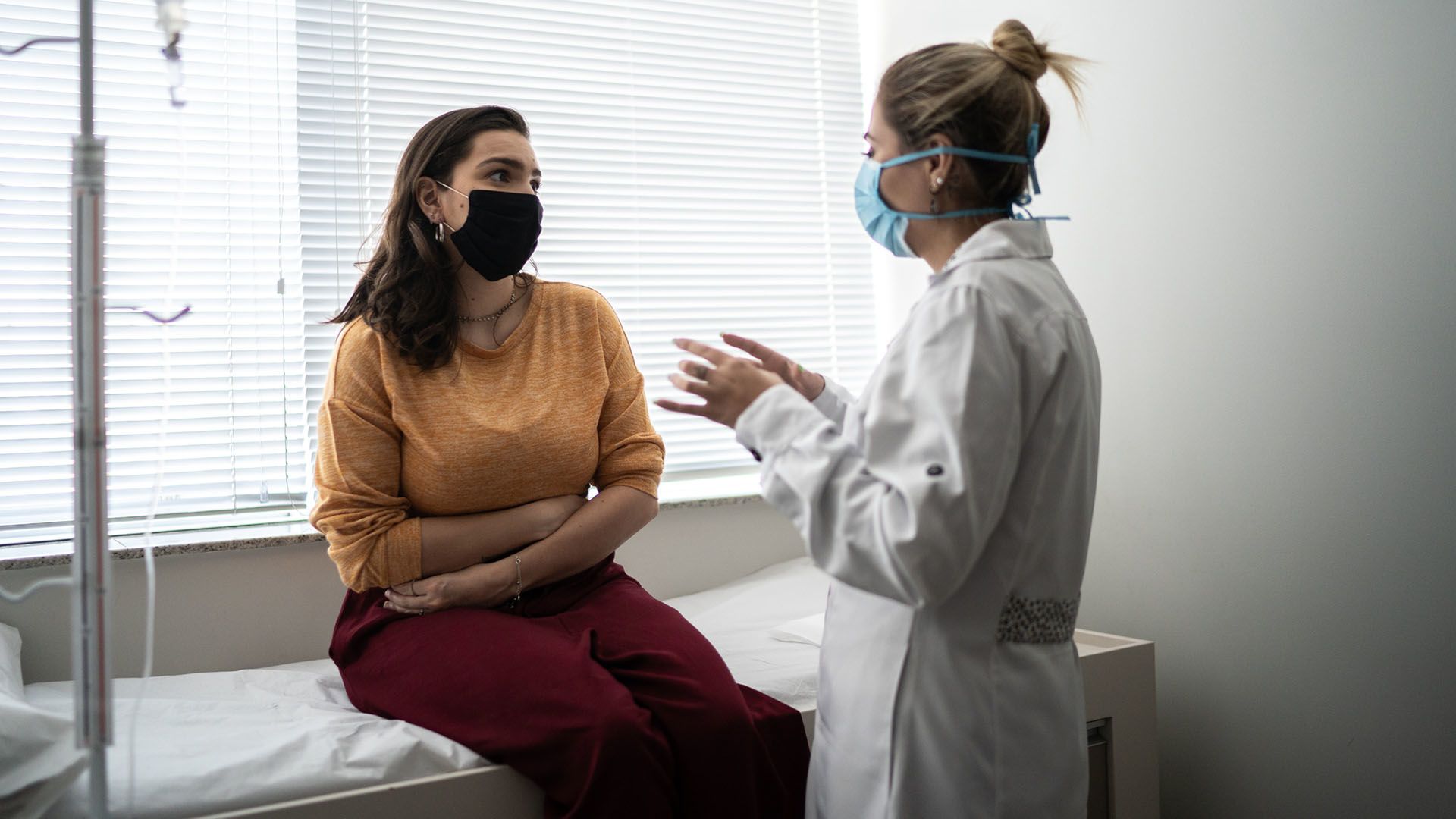It’s estimated that roughly 3 million people in the United States have been diagnosed with inflammatory bowel disease. Inflammatory bowel disease, or IBD, refers to a pair of conditions—Crohn’s disease and ulcerative colitis (UC).
Both conditions cause recurring episodes of inflammation in the gastrointestinal tract, but affect different sections of the GI tract:
- Ulcerative colitis causes inflammation inside the large intestine (the colon and rectum), and it causes inflammation across continuous section of tissue with no gaps in between.
- Crohn’s disease can cause inflammation anywhere in the GI tract, and it affects patches of tissue, with healthy sections in between.
While they are different conditions, UC and Crohn’s disease can overlap in the symptoms they cause. Pain and cramping in the abdomen, diarrhea, blood in the stool, and fatigue are common symptoms of both UC and Crohn’s disease.
There is also overlap in some of the medications that are used to treat both types of IBD. Among these medications are several biologic therapies.
What are biologic therapies?
IBD occurs when the immune system behaves in an abnormal way, causing chronic inflammation that damages healthy tissue within the body.
Also called “biologic response modifiers” or” biologics,” biologic therapies are drugs that interfere with specific inflammatory pathways in the immune system. When a person has an inflammatory disease like UC or Crohn’s, blocking these inflammatory pathways can control inflammation. Ideally, this will put IBD into remission and allow the GI tract to heal. Once in remission, a person will continue to take a biologic therapy, to maintain remission and long-term control of IBD.
There are different categories of biologic therapies that act on different pathways and proteins in the immune system, and there are also multiple drugs within each category.
How are biologic therapies administered?
Most biologic therapies are taken as an infusion that is delivered directly into the bloodstream, or as an injection delivered just beneath the skin. Infusion therapies must be given in a healthcare office. Injections may be self-administered and taken at home, after a person has been trained to self-administer the medication by their healthcare provider.
Can biologic therapies cause side effects?
Biologic therapies are considered safe, and like any drug that has been approved by the U.S. Food and Drug Administration (FDA), they have undergone rigorous testing for safety and efficacy.
However, biologic therapies come with a risk of side effects—every medication does. Because they act on the immune system, they can reduce the body’s ability to fight infections.
Before starting a biologic therapy, it’s important to discuss your medical history—including any history of serious infections—with your healthcare provider. A person will also need to be tested for tuberculosis before starting a biologic therapy.
Should you try a biologic therapy?
This is a question you will have to answer with the help of your healthcare provider. Biologic therapies are typically used to treat moderate-to-severe IBD—though there is research that supports using biologic therapies earlier in treatment rather than later.
Treatment for IBD is prescribed on a case-by-case basis—it depends on the type of IBD a person has, their symptoms and the severity of their symptoms, and other factors about their health, such as other treatments they have tried in the past, any other health conditions they have, their overall health, and their age.
In other words, no treatment is right for every person. Your best source of information about your treatment options for IBD will be your healthcare providers.
What if a biologic therapy doesn’t work?
There are numerous biologic therapies available, and if one does not work—or stops working—your healthcare provider may recommend switching to another biologic or trying another type of medication






